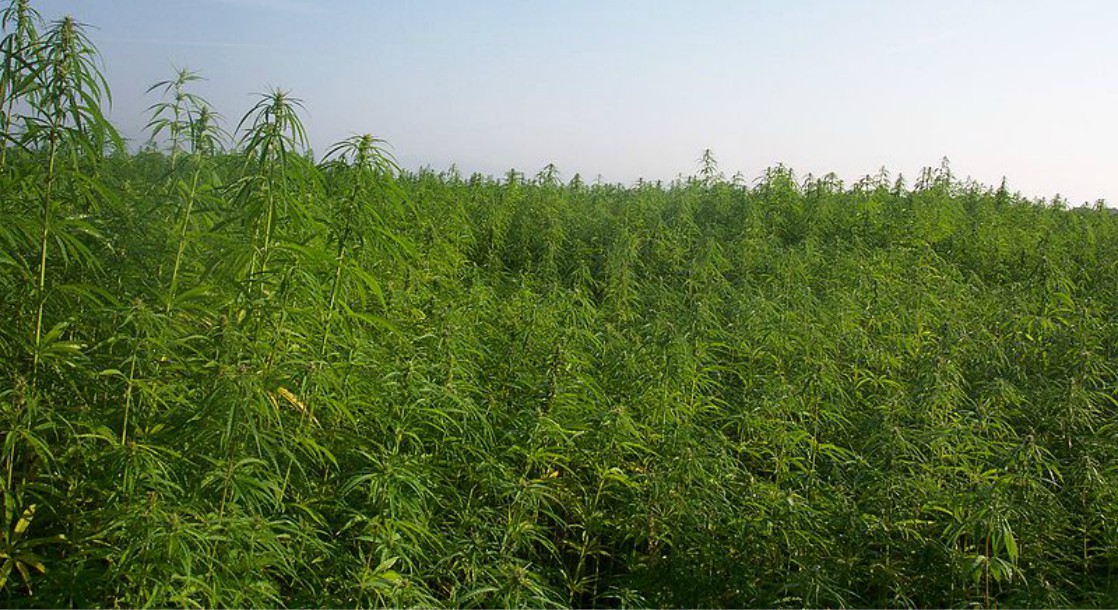Lead photo via Wikimedia Commons
It won’t get you high, you probably shouldn’t smoke it, and it’s not entirely legal, but industrial hemp is having quite the year. As states around the country continue to sort out a path towards legalizing cannabis for recreational and medical use, production of reefer’s non-intoxicating cousin has exploded.
According to a report from the advocacy group Vote Hemp, the size of America’s annual hemp crop more than doubled in 2017, from 9,770 acres of the industrial crop in 2016 to 23,346 acres produced this year.
“We’ve seen hemp cultivation significantly expand in the U.S. in 2017, with over double the number of acres planted in hemp compared to last year and the addition of 4 more states with hemp pilot programs,” said Eric Steenstra, President of Vote Hemp, in a press release. “The majority of states have implemented hemp farming laws, in clear support of this crop and its role in diversifying and making more sustainable our agricultural economy. It’s imperative that we pass the Industrial Hemp Farming Act in Congress, so that we can grant farmers full federally legal rights to commercially cultivate hemp to supply the growing global market for hemp products.”
Like the cannabis that gets you stoned, industrial hemp is still illegal on a federal level. As of now, 33 states have passed hemp-specific legislation, though the plant has been grown in only 19 of them this year.
In 2014, Congress passed an aptly titled Farm Bill that allowed for state agriculture departments to license hemp farms for use in university-lead research. And while those pilot programs are currently running at 32 universities, subsequent legislation from a number of individual states has made the plant available to a small number of commercial growers.
In addition to research, hemp is used to make a variety of natural food products, health supplements, and construction material called hempcrete. To qualify as industrial hemp, all of the plants must contain 0.3% THC or less.
To push the hemp revolution to a national scale and extend cultivation further into the free market outside of those university-sponsored programs, the Industrial Hemp Farming Act, HR-3530 is currently making its way through Congress. If passed, hemp would be legally distinct from its psychoactive relative.
Despite the federal Farm Bill that provides for state-allowed hemp cultivation, certain CBD and hemp seed products made from the industrial plant have been confiscated by the DEA over the years as part of the feds' traditional cannabis enforcement program, continuing the harmless plant's precarious legacy in America.
Even without federal legalization, states around the country are not hesitating to get in on the hemp rush. In Colorado, the state's stake in hemp grew even larger this year, with a nation-leading 9,000 acres of industrial hemp produced in 2017.
In New York, where legitimizing medical marijuana has been a struggle and recreational legalization is just a far-flung blip on the horizon, industrial hemp production has boomed, with entrepreneurs increasing the Empire State’s hemp output from 30 acres in 2016 to 2,000 acres in 2017.
But while hemp has taken off as a normalized crop across the nation, it appears the country’s cops haven’t heard, as police continue to mistake the THC-free substance for wacky tobaccy. Maybe it’s time for a new training protocol.
(h/t The Leaf)











